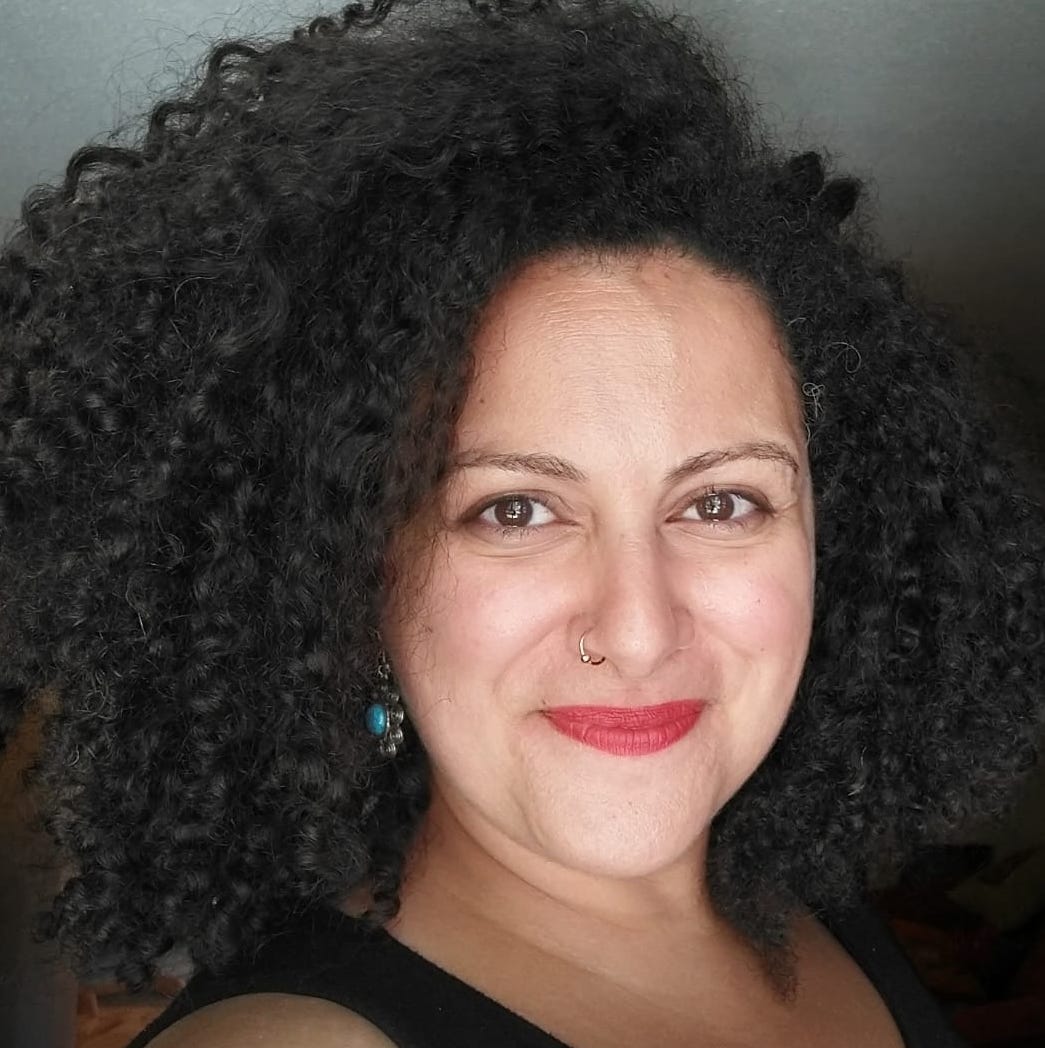Carolyn Ramzy

Associate Professor (Sociology and Anthropology; cross-appointed with Music)
- Ph.D. (Toronto), M.M. (Florida State), Bachelor of Musical Arts and Diploma of Ethnomusicology (Eastman).
- Email Carolyn Ramzy
Areas of Interests:
Feminist and anti-racist ethnomusicology; Egyptian Coptic Christian music; popular musics of the Middle East and connected diasporas; politics of citizenship and belonging; gender and the sounding of religious subjectivities; virtual ethnography and field research; decolonizing music scholarship; critical race and diversity studies.
About:
I am an ethnomusicologist who focuses on Egyptian Christian popular music in Egypt and a growing diaspora in the U.S. and Canada. Specifically, I examine how Orthodox music culture shapes the Coptic community’s gendered subjectivities, and the use of virtual technologies to challenge traditional understanding of (holy) belonging, sexuality, and faith. This work builds on my dissertation, “The Politics of (Dis)Engagement: Coptic Christian Revival and the Performative Politics of Song” (2014) that followed a powerful religious revival that used popular song to combat, and at times, comply with structural marginalization in colonial and missionary encounters, as well as sectarian conflict in Egypt and abroad. I also trace how these song and hymns, now translated for the diaspora, facilitate important conversations about Coptic experiences of racialization, assimilation, and belonging in an American and Canadian diaspora.
I completed a Bachelor degree of Musical Arts and a Diploma of Ethnomusicology at the Eastman School of Music, my Master’s in musicology from Florida State University, and my PhD in ethnomusicology at the University of Toronto Faculty of Music.
I regularly present my research at various conferences, including the Society for Ethnomusicology, the Canadian Society for Traditional Music, the Middle East Studies Association, the American Anthropology Association, and the American Academy of Religion, the International Association for Popular Music, and the International Association for Coptic Studies.
I am cross appointed to the Institute of African Studies (IAS), the Institute for Comparative Studies in Literature, Art, and Culture (ICSLAC), and the Pauline Jewett Institute of Women’s and Gender Studies, and Music. I teach courses on ethnomusicology theory and method, music and religion, sounded globalization, as well as music and conflict.
Recent Publications
2023 “Coptic Women Sing Too” An Exhibit for The American Religious Sound Project Gallery (Ohio and Michigan State University), https://gallery.religioussounds.osu.edu/copticwomensingtoo-exhibit-home/.
(2021) “Decolonizing Coptic (Music) Studies: A Discussion.” Journal of Canadian Society for Coptic Studies, in press.
(2020) “‘The Revolution Did Not Take Place’: Hidden Transcripts of Cairokee’s Post-Revolution Music.” Music & Politics 14, Number 1 (Winter), http://dx.doi.org/10.3998/mp.9460447.0014.103.
(2020) “Coptic Orthodox Feminism: Popular Song and Gender Reformation in the Diaspora” in Studies in Coptic Culture and Community: Ordinary Lives, Changing Times, ed. Mariam Ayad. Cairo, Egypt: The American University in Cairo Press, in press.
(2019) “Repatriating an Egyptian Modernity; Transcriptions and the Rise of Coptic Women’s Song Activism,” Oxford Handbook of Musical Repatriation, edited by Robert Lancefield, Bret Woods and Frank Gunderson (Oxford University Press): 403 – 419.
(2017) “Singing Heaven on Earth: Coptic Counterpublics and Popular Song at Egyptian Mūlid Festivals,” International Journal of Middle East Studies, Vol. 49, no. 3: 375 – 394.
(2017) “Singing Strategic Multiculturalism: The Discursive Politics of Coptic-Canadian Protests,” in Copts in Context: Negotiating Identity, Tradition, and Modernity, edited by Nelly van Doorn– Harder, (Columbia, South Carolina: University of South Carolina Press): 155-176.
(2017) “To Die is Gain: Singing a Heavenly Citizenship Among Egypt’s Coptic Christians” in The Afterlife in the Arab Spring (reprint of special issues of Ethnos, 2014), edited by Amira Mittermaier, (New York: Routledge), 67-88.
(2016) “Autotuned Belonging: Coptic Popular Song and the Politics of Neo-Pentecostal Pedagogies.”Ethnomusicology. University of Illinois Press, September 2016.
(2013) “Performing Coptic Expressive Culture,” The Coptic Christian Heritage: History, Faith, and Culture, edited by Lois Farag. Routledge Press, 2013.
(2010) “The Copts and Coptic Music: An Introduction,” Coptic Orthodox Liturgical Chant & Hymnody; The Ragheb Moftah Collection at the Library of Congress. Washington, D.C.: The Performing Arts Encyclopedia: Explore Music, Theater, and Dance at the Library of Congress Website, 2010 www.loc.gov/performingarts/.
(2010) “Notating Coptic Music: A Brief Historical Survey.” Coptic Orthodox Liturgical Chant & Hymnody; The Ragheb Moftah Collection at the Library of Congress. Washington, D.C.: The Performing Arts Encyclopedia: Explore Music, Theater, and Dance at the Library of Congress Website, 2010 www.loc.gov/performingarts/.